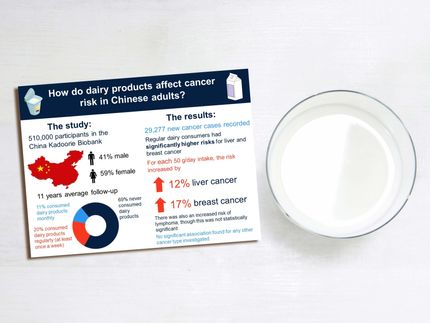It is illusory that eating habits will change fundamentally because of recommendations
Advertisement
The new nutritional recommendations offer an updated guide to healthy and sustainable eating. However, nutritionist Beatrice Conrad emphasizes that the influence of the food pyramid is often limited in practice by individual factors and external circumstances. Despite the scientific basis, experience shows that eating habits are influenced by many other factors that make it difficult to implement the recommendations. Last updated on October 11, 2024 by Renate Hodel
The Federal Food Safety and Veterinary Office FSVO, together with the Swiss Society for Nutrition SGE, developed new nutritional recommendations and presented them in mid-September. They now take four dimensions into account: Needs-based nutrient intake through a diverse selection of foods, health promotion, sustainability aspects and eating habits common in Switzerland. These recommendations are intended to provide citizens with guidelines on how to eat a healthier and more balanced diet.
The new Swiss recommendations for a healthy diet and the associated new food pyramid provoked mixed reactions and most organizations and associations had at least one point of criticism to make. At this year's Milk Forum of the Swiss Milk Producers SMP, Beatrice Conrad, nutritionist and former president of the Swiss Association of Nutritionists (SVDE), shed light on the significance of the new food pyramid in practical nutritional advice.
The food pyramid as a guide, not a set of rules
Beatrice Conrad emphasized that it should not be seen as a rigid set of rules. "For us, the pyramid is a basis, a guideline - but nutritional advice is much more than just bringing the pyramid closer to the consumer, because eating is very individual."
Although the pyramid provides valuable information, Beatrice Conrad often sees in her work that other factors play a much greater role. Stress, social media, cultural influences and the price of food, for example, have a greater impact on people's decisions than official recommendations. "We are influenced by environmental conditions, availability, product placement and many other factors when we eat," the nutritionist continued. It is therefore illusory to expect the population's eating habits to change fundamentally as a result of the new recommendations.
The role of milk and dairy products in nutritional advice
Beatrice Conrad also devoted part of her presentation to the discussion about milk and dairy products in nutritional advice. Although milk is often a controversial topic, Beatrice Conrad emphasized that milk is still an important part of a balanced diet. She emphasized: "Milk contains proteins, fats and carbohydrates in a balanced ratio and also a wide variety of vitamins and minerals - it is therefore a valuable food."
Especially for people who follow a lacto-ovo-vegetarian diet, dairy products are a high-quality alternative to meat as they are a good source of protein and calcium. However, the nutritionist pointed out that milk should be seen as a food and not a drink: "If you want to be full, it's better to eat dairy products in the form of cheese, quark and yogurt - if you want to quench your thirst, drink water or other drinks without sugar."
In her practical work as a nutritionist, Beatrice Conrad is constantly confronted with myths about milk. For example, there are claims that milk leads to inflammation, acne or antibiotic residues. However, these myths can be refuted by scientific studies. "There are far more myths than facts about milk," she explained, highlighting the uncertainty of many consumers when it comes to dairy products.
In summary, Beatrice Conrad believes that milk remains a valuable and balanced food that plays an important role, particularly for certain population groups such as senior citizens. At the same time, it is crucial to respond individually to the nutritional habits and needs of clients. Despite the many myths surrounding milk, Beatrice Conrad still sees it as an indispensable element of nutritional advice that can contribute to nutrient supply at every stage of life.
Only 3 percent adhere to vegetable recommendations
For many years, the recommendation has been made in Switzerland to consume five portions of fruit and vegetables a day. However, as Beatrice Conrad explained in her presentation, only 3.3 percent of the Swiss population adhere to this rule. "If the Swiss don't manage to eat a little more fruit and vegetables in 40 years based on these recommendations, then we have to assume that other factors and other stimuli influence our eating decisions more," she commented soberly.
Nutritional advice is not just about introducing people to the pyramid. Beatrice Conrad explained that the needs of clients are different: "Whether you want to provide a healthy diet for growing children or whether athletes want to optimize their performance or whether you want to eat as optimally as possible in old age to ensure that your nutritional requirements are met and no malnutrition occurs, these are all different pairs of shoes," she explained. This shows the need to adapt the general nutritional recommendations to the individual.
The role of nutritional advice: communicating more than the pyramid
Nutritionists would of course be guided by the food pyramid, but advice must always be tailored to people's lifestyles, preferences and specific health needs. And since there is an overwhelming abundance of factors that influence our eating decisions, the implementation of nutritional recommendations is incredibly difficult.
Beatrice Conrad's presentation showed that the new food pyramid remains a valuable tool in nutritional advice, but cannot solve all the challenges of modern nutrition. "We don't have a good solution as to how we can reconcile health, sustainability, etc. in nutrition," the nutritionist concluded, adding: "The solution would probably be more sufficiency - a little less of everything, because I think we have 'too much of everything'."
Source: https://www.lid.ch/artikel/es-ist-illusorisch-dass-sich-die-ernaehrungsgewohnheiten-wegen-empfehlungen-grundlegend-aendern
Note: This article has been translated using a computer system without human intervention. LUMITOS offers these automatic translations to present a wider range of current news. Since this article has been translated with automatic translation, it is possible that it contains errors in vocabulary, syntax or grammar. The original article in German can be found here.


































































